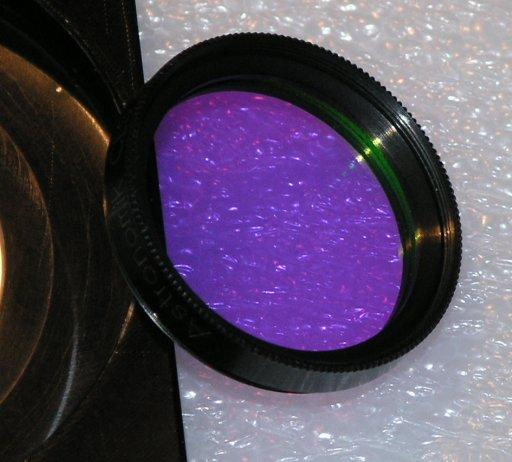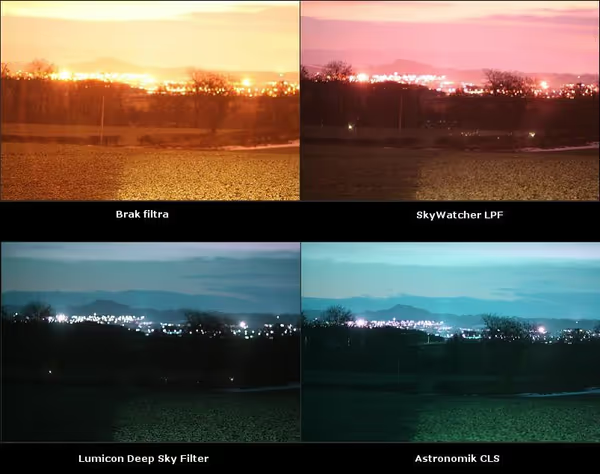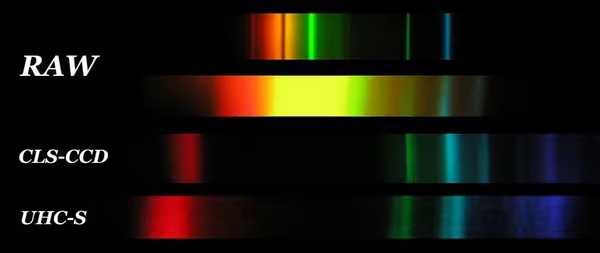Fighting light pollution with Astronomik CLS and CLS-CCD filters
Astronomik CLS and CLS-CCD are quite bright filters that are designed to cut light pollution and sky glow. Both filters are available in different sized including Canon Clip filter that mounts inside the DSLR body. They are bit brighter than Baader UHC-S and similar UHC filters. They pass [O III], H-beta, H-alpha, [S II] bands in which emission nebulas glow. They don't pass bands in which street lights glow. CLS-CCD has an IR cut just after [S II], while CLS just keeps the transmission further in the IR. Those filters can be used visually, but they will give most of themselves in DS imaging.

In astrophotography they can be used with colour and mono cams. Broad transmission bands limit colour balance changes (although it will be changed in some extent). For DSLR the CLS version seems to be recommended, while mono cameras should use CLS-CCD to avoid IR refraction on bright f-ratios and other similar problems.
For with/without comparison you may check stargazerslounge, or for example Markarian test (also from SGL):


CLS and CLS-CCD have slightly different spectral performance. Astronomik website gives such figures:
CLS-CCD:- 95% transmission at 486 nm (H-beta)
- 95% transmission at 496 nm (OIII)
- 95% transmission at 501 nm (OIII)
- 97% transmission at 656 nm (H-alpha)
- pass from 450 to 520nm and from 640 to 690nm
- 92% transmission at 486 nm (H-beta)
- 92% transmission at 496 nm (OIII)
- 92% transmission at 501 nm (OIII)
- 97% transmission at 656 nm (H alpha)
- pass from 450 to 540nm and beyond 650nm

Comment article